She coaches corporate top leaders in Asia on leadership, she’s a long-standing chairwoman at Executive’s Global Network (EGN) in Singapore, she spearheads a non-profit initiative to bring more diversity on the big speaking stages, she has learned and then coached others in how to become entrepreneurs… Meet book author, mentor and serial social entrepreneur Mette Johansson!
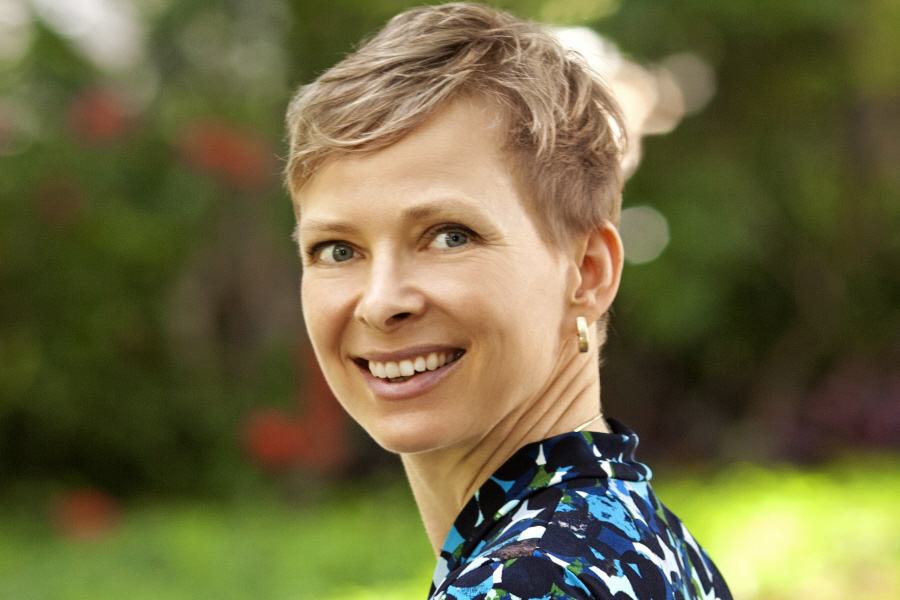
The ‘serial’ word in Mette Johansson’s title is indeed appropriate because this Dane has many irons in the fire. And with social entrepreneurship she has found her calling. Based in Singapore since nine years back ‘Metamind Training’, a boutique Learning and Development consultancy, is her main business and where she excels in what she is really good at.
This company facilitates the development of human leadership skills with Mette’s philosophy very much being based on Authentic Leadership: ‘Leading authentically is the foundation of strong human connections and it helps unlock vast amounts of energy. It allows us to achieve extraordinary things.’
Mette states that she strives to be Authentic in all aspects of her life, and she support leaders to do the same.
To learn more about how Mette has arrived at this principle we first need to step back in time. Mette, who has only lived in Denmark for ten years, has spent many years in Asia, including studying Mandarin at a Chinese university and working in Shanghai and Tokyo. Working for BASF also brought her to work in Singapore, and then a second time when her husband was required to move there. At this juncture Mette came to the conclusion that it was time for her to leave the corporate employment and become an entrepreneur.
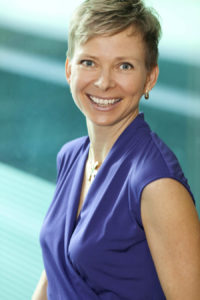 “And I have not regretted that; I absolutely enjoy it! I first took some time off and started asking myself tough questions, with a lot of self-reflection and looking at what really energises and fulfils me. I then realised that the times when I felt the most fulfilled in my career was when I had an impact on other people’s career. And this even goes back to school years when I helped other kids with their math problems. So when connecting the dots backwards it is what drives me; I get a kick out of empowering other people to do the best they can, to be the better versions of them self. And in my career that is also when I had the most fun,” she recalls.
“And I have not regretted that; I absolutely enjoy it! I first took some time off and started asking myself tough questions, with a lot of self-reflection and looking at what really energises and fulfils me. I then realised that the times when I felt the most fulfilled in my career was when I had an impact on other people’s career. And this even goes back to school years when I helped other kids with their math problems. So when connecting the dots backwards it is what drives me; I get a kick out of empowering other people to do the best they can, to be the better versions of them self. And in my career that is also when I had the most fun,” she recalls.
Starting out as an entrepreneur Mette had no idea how to run her own company so she took a mentorship programme for entrepreneurs, which she found to be useful and that gave her some frameworks, and also networks within the entrepreneurial community.
“After I finished it they hired me to coach others in how to become entrepreneurs. So I have been a mentor and a coach for other entrepreneurs to boost their own companies.”
Fast forward to today and Metamind Training is established as a training consultancy, where Mette has established some very large multinationals as clients.
“Getting customers is in the end to be comfortable with sales. And for most of us the clients don’t come falling into our laps; it’s about going out there and knocking on doors, proving your worth and doing sales work. The times when I have had good sales people on my team is when I’ve sold the most, and even by delegating it to sales people I still have to do a lot myself,” says Mette.
Most of the time companies ask her to design training programmes for their leaders. Doing off-the-shelf programmes is not really her thing.
“I am good at putting together such programmes that are very practical, of course based in theory. Together we discuss how to design it and I develop and deliver it together with my team. It’s about how you can make sure that leaders will do things differently after my leadership programme. And that means changing their mindset, providing the skills set, and closing this ‘know-do’ gap; ‘I know what to do but am I doing it as well?’ That’s what is important. If there are modules that I’m not an expert on delivering, such as project management, I rather bring in experts on these topics,” she elaborates.
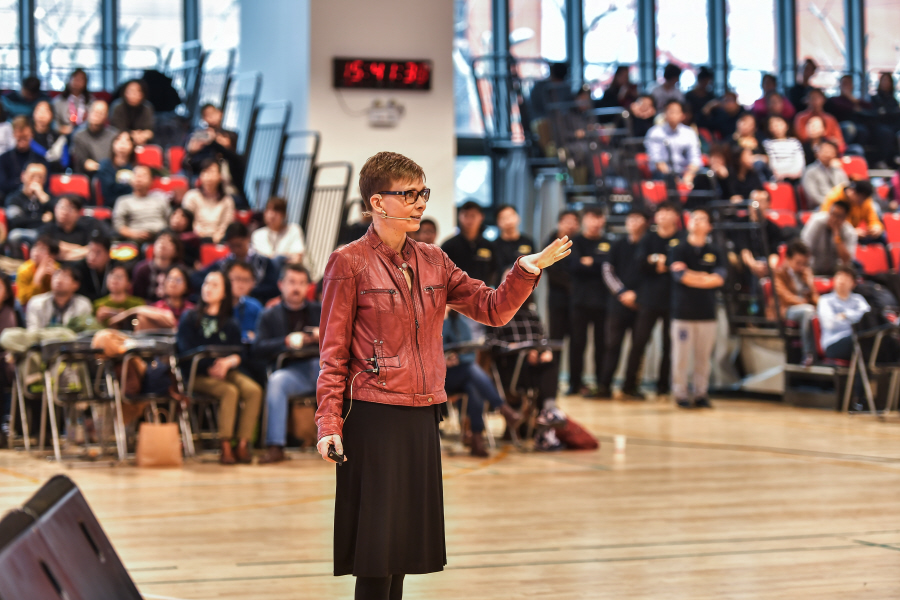
By remaining and focusing on clients in Singapore Mette has also gained foothold in the region.
“Word of mouth spreads from where you are. Slowly but surely over the years clients working with me also asked if I could something which was overseas, so it has gone from neighbouring countries to doing work also in Shanghai, a lot in Mumbai, and gradually also to other parts of the world, such as Dubai and Europe.”
Covid-19 has of course put a dent on this international part in particular but Mette has also been able to continue her coaching virtually, from a home studio.
“With the Covid situation there are two-and-fro on regulations and the way things keep changing makes people very insecure. People want to have clarity and stability whether it is leadership or whether it is leading a country, people want stability. As an entrepreneur I can deal with a certain dose of constant change, but I can’t plan and sometimes it gets too much and I wish for more stability. So hopefully we will get out of this situation soon.”
It is a topic that has had strong impact on businesses operations, with work-from-home regimes as a new situation for company managements.
“It is one of the things I work a lot with right now, as part of Metamind Training, about how things are changing. An observation I have is that nobody really knows how to deal with it. We all know that this will not go back to the good old days; that we need to learn to work in a hybrid world. And you ask: ‘What are the concrete things we will be doing differently? What do you need to do differently as a leader?’ Then the conversation becomes very simple: people don’t have much to say beyond that one needs to take one-on-one time and chat with people. Usually when we work and see each other face-to-face we have more casual talks, which have been prevented here during Covid-19 restrictions. That is one thing that is mentioned over and over again.”
“And we have come to accept that we need to trust our employees more when they work from home, we cannot look them over the shoulders anymore. Still, leaders have not really changed how they trust and engage employees, how they show up as good leaders. There are only very few new thoughts coming up and my own opinion is also that when it’s virtual all the things that we know about good leadership we need to magnify; we need to become even better leaders than we used to be.”
And when the suggestions turn to a need to be more flexible and agile, the question, says Mette, must be: ‘How do you get that mindset? How do you take decisions faster?’ Then they do not know how to do that. ‘Just do it!’ is simply not the formula.
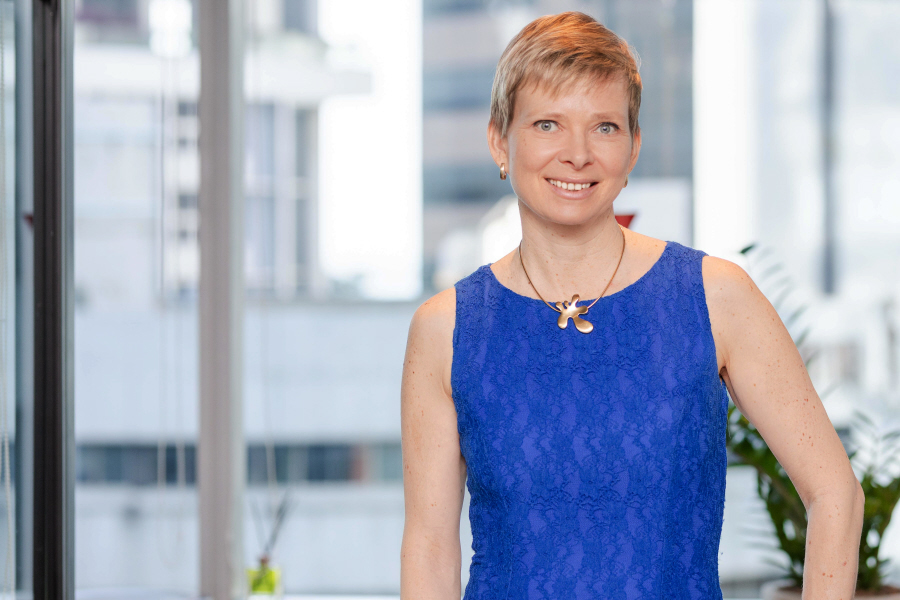
“This is a mindset thing; we can’t just change our whole way of functioning from one day to the other.”
“The most interesting observation that I have made is that leaders still don’t trust that employees will put in their fullest. I have some very large multinational companies as clients and where trust is the biggest issue: ‘Do we trust our staff to do a good job? Or are they hanging around on social media and working short days?”
Mette points out several issues with this: “First of all it’s your job as a leader to engage people, to inspire people, to make sure that they are having fun. And the insecurity that comes around that is expressed in: ‘I’m going to check whether you are working or not. I’m going to expect you to answer a message whether it is 6 am or 10 pm.’ Because we simply do not know better how to make sure that we are getting the most out of our employees and this insecurity is sometimes translated into micro management.”
In Mette’s view ‘flexible remote work’ will remain going forward, and is something that brings much efficiency. “There is also lost efficiency when you work remotely because of that we have become so task-focused during Covid-19. There is affective trust and there is cognitive trust. Cognitive trust is that: ‘I trust you to do a task, to show up and deliver on time and do a good job.’ Affective, or emotional trust is that you will support me, listen to me, and have my back.” And we have become so task-focused during our zoom calls that this whole affective trust is suffering. And that’s why I do believe that all companies that have a mixed approach, a hybrid.”
“A lot of the processes in corporations also are based on affective trust and that is the best; when you see that entire body language and feel the energy coming through the room, instead of calling somebody up over the phone. It’s those small interactions at work that build affective trust and that is why a combination where people work partly from home and from the office must be the future,” she continues.
Leadership and workplace productivity etc. are also in focus for Mette’s first book: ‘How to Make Yourself Promotable – 7 skills to help you climb the career ladder’.
“It’s a book for those who are ready to step up into people leadership roles.”
With the help of this book one can pursue a promotion that is truly fulfilling, and find one’s calling – based on one’s values.
When asked specifically about what advise Mette would give as best approach to become a skilled leader, she responds that there are loads of different things that one can work on – and gives an example where the authenticity idea shines through: “I had a talk to young girls from the age of 15 to 21 – and told them: ‘Focus less on studying and more on the things you learn outside of school!’ Of course a lot of parents will be very upset with me when I tell their daughters to focus less on their studies. But I‘m very convinced that we don’t learn the skills for being a leader at school; it’s what we do outside of it; when we decide to be a volunteer, when we become the captain of a football team, when we get a part-time job etc. Maybe this is one of the advantages of Covid; we’ve got more students working here in Singapore because a lot of foreign workers no longer get visas or do not want to stay here anymore. The cafes and the supermarkets need to employ students; they cannot function otherwise. Taking such responsibility and actually doing these chores make you grow. Towards leadership. And mentoring others is already one thing that helps a lot on that path.”
“One of the main definitions of good leadership is probably that you know what you want to do in your life. And if it is something that has a purpose for the greater good, and you learn how you can inspire other people about this purpose – that’s already leadership because you get people to follow you,” adds Mette.
She loved writing that book and Mette is now contributing to other books, where there are three in the pipeline. “It’s a way of making some of things that you know available to a much bigger audience so that others are going to benefit from it.”
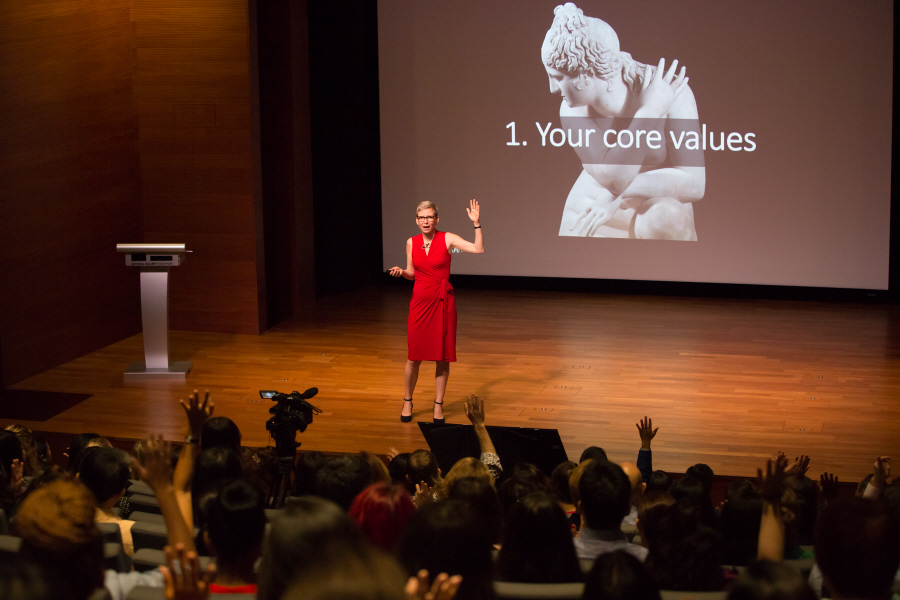
Then, there is the volunteer-based initiative KeyNote Women Speakers (KWS), where she is on a mission to give more women voices to speak up on stage, and bring more diversity onto the speaking stages worldwide.
“We all stand to benefit from diversity and inclusion. When there are more diverse ideas brought to the table we can pick the best ones, build upon them and get better results. That’s why we need more diverse speakers out there, and rather the whole bandwidth of whatever under-represented groups, or diversity groups, should be represented.”
KWS train women who are already thought-leaders and experts in Singapore and make sure that they have the skills to inspire also from a stage. They also provide those who are already speakers with a platform for increased visibility. Finally they reach out to companies and conference organisers who need women speakers or to propose the female alternative where there is a very male-dominated agenda.
Mette explains that in this initiative she gets a lot of goodwill from being non-profit, while she hopes society can change so that doing good can also be profit-driven.
“Luckily the trend is out there that companies need to look after not only their profit but also people and the planet with a purpose. I run our businesses around purpose and people; as for planet I don’t really have much of an impact because it is centred on people. So I want to do more social entrepreneurship – which is what I strongly believe in – and right now, whatever activity I have focuses on doing good.
This also goes for the Inclusive Leaders Institution, which she describes as a platform in its start-up phase set up to provide information on inclusion.
“We are a very diverse group of experts on diversity and inclusion coming together to make sure that we are providing perspectives from all over the world. That is our main aim. Inclusive leadership often equals focusing on gender equality in this part of the world. In Singapore that is one of the biggest issues being discussed right now and in Asia in general as well. And it makes sense because 50% of the population is female and that is not reflected in our leadership levels in the companies. However, inclusive leadership goes much further. Inclusion means that you accept people, listen to their ideas, value, respect, and include those ideas – regardless of where these come from. It’s about accepting everybody regardless of their background and whatever ‘diversity label’ that we have. There is still an intensive race discussion to be held around Asia.”
Collaborations with researchers within the universities are being considered. We are looking forward to being able to travel and get together again and make a launch, including with our new book on the shelves in 2022.



As a woman, Social entrepreneur Mette Johansson is my IDOL. I appreciate the full reading and got some inspiration. By the way, I am going to share the post on my social media pages to see my friends and followers. Thanks and keep up the good work!
I respect everything that you have written in this blog. Please continue to provide wisdom to more people like me.